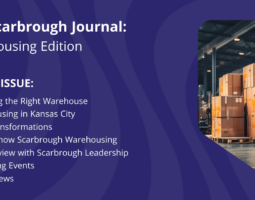Four Tips to Know for Retail Compliance
Selling products online through a major retailer? Don’t look past one crucial step in the fulfillment process: retail compliance.
Businesses of all kinds have seen e-commerce sales soar this past year through major retailers like Walmart, Dick’s Sporting Goods, and Wayfair. But while business is booming, the red tape involved with fulfilling retail orders can cause snags in the process. Understanding and preparing for retail compliance can help your business avoid delays, chargebacks, and other obstacles.
1. Every Retailer Has Different Compliance Rules
Retail compliance isn’t a one-size-fits-all situation. Every retailer has its own guidebook for fulfillment compliance, each unique in form, length, and details. From UPC code requirements to pallet-packing guidelines, retailers often provide pages and pages of rules. Digging through these compliance guides can be a rigorous task that requires attention to detail.
“They’re usually anywhere from 20 to 150 pages,” said Scarbrough Warehousing Team Lead of Account Services Tricia Lashley. “You have to read through every word because you never know what you’re going to find.
2. Expertise Required
Navigating through retail compliance requirements is a specialized task. A dedicated compliance expert offers the strongest odds for success.
Unfortunately, the retail compliance environment is often too complex to manage without a specialized role. A compliance expert can take the time to dig through each compliance guide, take notes, and compile the most important elements for quick and easy access by staff. This kind of role also offers greater flexibility and agility as compliance rules are updated and new retail partners arrive.
3. Keep a Line of Communication
Retail compliance is complicated, and you’re more than likely to have some questions along the way. Don’t wait until the last minute to find a resource to consult when needed. Many retailers are large companies with dozens of departments and thousands of employees — finding someone who can answer your questions may take a while. Instead, it’s smart to request a dedicated service representative from the start. Having a single point of contact can mitigate confusion and help you stay on top of compliance updates, chargeback disputes, and more.
4. Look for a Customized Solution
As e-commerce continues to rise, more and more businesses are turning to 3PL fulfillment options. That means delegating your retail compliance needs to a third party. It’s important to find a fulfillment partner who can tailor a customized solution, keeping in mind the complexities and importance of retail compliance. After all, every e-commerce business is unique. A dedicated, qualified 3PL warehouse service knows how to stay agile and flexible while keeping your orders compliant with retailer requirements.
Lashley emphasized the importance choosing a 3PL that can supply a customized compliance plan.
“You don’t want a cookie-cutter operation,” she said. “We will adapt, we will make suggestions, but at the end of the day, we’re going to do what works for you.”
Contact Scarbrough
Working with Scarbrough Warehousing is a great way to get customized retail compliance support. Our expertise and experience can help you find success and stability as your e-commerce operation grows. Contact our team to find out more about retail compliance.

